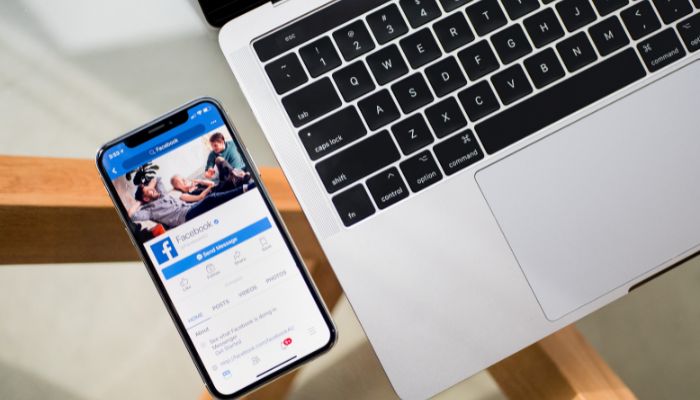
Just like a house key can reveal the secrets behind a closed door, a Facebook background check can unveil hidden aspects of a person’s life.
A Facebook background check involves examining a person’s profile, posts, likes, shares, and interactions to understand their online behavior and personality. This can provide a more comprehensive view of an individual, beyond just their resume or what they choose to share in an interview.
You’re about to dive into the world of digital screening, where you’ll explore legality, pros and cons, privacy concerns, and how to effectively use this tool. Get ready, it’s a brave new world out there, and you’re about to become a part of it.
Table of contents
- Understanding Facebook Background Checks
- Why Employers Use Facebook for Background Checks?
- Legal Aspects of Facebook Screening
- Pros and Cons of Facebook Background Checks
- Privacy Concerns and Digital Identity
- How to Prepare for a Facebook Background Check?
- Enhancing the Effectiveness of Facebook Checks
- Conclusion
- FAQs (People Also Ask)
Understanding Facebook Background Checks
In the realm of social media, you’ll find that Facebook background checks are key tools for gaining insights into someone’s online behavior and reputation. They help you analyze someone’s social media accounts, more specifically their Facebook profile, to gain a deeper understanding of their social media activity.
You see, these checks aren’t just about scrolling through posts and photos. They involve a comprehensive review of a person’s interactions, posts, likes, shares, and even comments. Here’s where you’ll see the true picture of a person’s online persona.
However, don’t forget about privacy settings. They can limit what you can see on social media profiles. Some people set their accounts to private, meaning you can’t access their content without their permission. It’s a hurdle, yes, but it’s a reflection of their digital consciousness.
Why Employers Use Facebook for Background Checks?

The Rise of Social Media in Professional Settings
In today’s digital age, Social Media Background Checks have become an integral part of the recruiting process. With the proliferation of social networking sites like Facebook, employers have found an accessible way to gain insights into potential hires.
Facebook, with its billions of people as active users, offers a vast pool of information, from social media posts to profile pictures, that can provide a more holistic view of a candidate beyond the traditional job application.
Benefits for Employers
Social Media Managers and hiring managers alike have recognized the value of conducting a social media background search. One significant advantage is uncovering hidden talents that might not be evident in a resume or during the interview process.
For instance, a blog post or a project shared on Facebook might reveal a candidate’s expertise in digital marketing or their passion for a company mission that aligns with the company culture.
Moreover, a background check firm might use apps for background checks to streamline the process, ensuring that the background check verifications are thorough. This method of screening can give a company compliant advantage over competitors in the fierce competition for positions and help them acquire talent that fits seamlessly into their company values.
Potential Red Flags and What They Look For
However, it’s not all about finding the ideal candidate. Background check findings can also reveal potential issues. For instance, criminal records sourced from criminal record sources or controversial comments on posts can indicate bad character traits.
Sexual harassment allegations or signs of bullying in posts can be severe red flags. Background investigations might also delve into public records to verify employment history or even credit history.
Furthermore, while a candidate’s social profile might showcase their achievements, it can also reveal discrepancies with their employment verifications. For instance, a claim about a previous employer on a resume might not align with social media posts from the same time frame.
In conclusion, while Facebook and other social media accounts offer a treasure trove of information, employers must tread carefully. Ensuring that their background check policy is fair and does not lead to alleged discrimination is crucial. After all, in the quest to find the perfect fit, it’s essential to remember that every individual deserves a fair game in the job search process.
Legal Aspects of Facebook Screening
Before you dive into Facebook screening, it’s crucial that you understand the legal implications involved. As a potential employer, you must adhere to privacy laws during the hiring process. Overstepping boundaries can lead to costly legal troubles.
The legal landscape around social media screening of job applicants is complex. Here are some factors to consider:
- Privacy laws: These laws vary from place to place. It’s essential you’re aware of the privacy laws in your area before initiating any form of social media screening.
For example, in some jurisdictions, you can’t use information related to an applicant’s religion, race, or marital status in your hiring decisions. - Consent: Potential employers often need consent for background checks.
It’s not clear whether this requirement applies to social media screening. However, to be on the safe side, always seek consent. - Accuracy of information: Social media isn’t always a reliable source of information.
False information can lead to unfair hiring practices.
Pros and Cons of Facebook Background Checks

Advantages for Employers and Job Seekers
- Comprehensive Insight: Employers can gain a broader understanding of a candidate’s personality, values, and interests through their social media posts and interactions. This can help in assessing if the individual aligns with the company culture and company values.
- Verification: Background check agencies and background check experts can use Facebook to verify claims made by applicants in their resumes. For instance, a job position mentioned in a CV can be cross-referenced with social media posts from the same period.
- Uncovering Hidden Talents: As mentioned earlier, hidden talents or achievements that might not be present in a formal resume can be discovered. A blog post or a project shared can indicate a candidate’s passion or expertise in a particular field.
- Advantage for Job Seekers: Those who maintain a clean and professional online presence can have an edge in the candidate pool. Their social profile can act as an extended portfolio, showcasing their work, achievements, and endorsements from peers.
Disadvantages and Potential Biases
- Incomplete Picture: Relying solely on social media background checks can give an incomplete or skewed view of a candidate. Not everything on Facebook represents a person’s professional life or their character traits.
- Potential for Bias: There’s a risk of adverse action based on personal beliefs, sexual orientation, national origin, or other non-job-related factors. This can lead to accusations of discrimination or alleged discrimination.
- Misinterpretation: A post or a comment can be taken out of context, leading to unfair judgments. For instance, a sarcastic comment might be misconstrued as a genuine belief or attitude.
In summary, while Facebook background checks can offer valuable insights, they come with their set of challenges. Employers must weigh the pros and cons carefully, ensuring a fair and transparent background check process.
Privacy Concerns and Digital Identity
Navigating the world of Facebook background checks, you’re likely to encounter privacy concerns and dilemmas relating to digital identity. With employers increasingly carrying out social networking background checks, the line between your online profiles and professional persona can blur.
Here are some privacy concerns and digital identity aspects to consider:
Privacy Concerns:
- Invasion of Personal Space: Social media background searches can dig up information you might want to keep private, encroaching on your personal space.
- Data Misuse: Once your data is out there, it’s hard to control how it’s used. You might become a victim of identity theft or cyber fraud.
- Consent: Employers may conduct a search without your consent, infringing on your rights.
Digital Identity:
- Online Reputation: What you post online contributes to your digital identity, impacting potential job prospects.
- Inaccurate Information: Not everything online is true. False information can damage your reputation and job prospects.
- Identity Theft: Your online profiles could be manipulated or stolen, leading to a tarnished digital identity.
How to Prepare for a Facebook Background Check?

Tips for Job Seekers
- Consistency: Ensure that your employment history and job positions listed on your resume match the information on your Facebook profile. Any discrepancies can be a red flag for hiring managers.
- Professionalism: Maintain a professional demeanor in your social media posts and comments on posts. Avoid engaging in bullying or making controversial statements that could be perceived as bad character.
- Showcase Achievements: Use your Facebook profile as an extension of your resume. Share blog posts, projects, or any other work-related achievements that can make you stand out in the candidate pool.
Cleaning Up Your Online Presence
- Review Past Posts: Go through your old posts and delete any content that might be inappropriate or not in line with the image you want to portray to potential employers.
- Untag Yourself: If you’re tagged in photos or posts that could be seen as unprofessional, untag yourself. Remember, these can be visible to background check agencies and background check experts.
- Highlight Positive Aspects: Share content that reflects your interests, values, and skills relevant to the job position you’re seeking. This can give you an advantage over other candidates.
Privacy Settings and What to Be Aware of
- Adjust Privacy Settings: Review and adjust your privacy settings to have control over who can see your posts, photos, and other information. This is crucial to protect your personal information from background search firms and background check services.
- Be Mindful of Friends’ Posts: Even if your profile is clean, posts from friends can still reflect on you. Politely ask friends to avoid tagging you in inappropriate content.
- Understand the Background Check Process: Familiarize yourself with the background check process and what employers can legally access. This knowledge can empower you to take the necessary steps to protect your privacy while still showcasing your best self to potential employers.
In conclusion, preparing for a Facebook background check is an essential step in the job search process. By taking proactive measures to clean up your online presence and adjust your privacy settings, you can ensure that your Facebook profile reflects the best version of yourself to hiring managers and recruiting firms.
Enhancing the Effectiveness of Facebook Checks
To better protect your privacy and enhance your digital identity, you’ll need to understand how to increase the effectiveness of Facebook background checks. These checks are commonly conducted by employers during the job application process, using social media search tools to gain a deeper understanding of potential candidates.
Facebook, like other social media sites, can reveal a lot about your social networking profile. However, you can take steps to ensure a more favorable outcome.
- First, review your privacy settings. Limit who can see your posts, especially those that may be perceived negatively by potential employers.
- Second, clean up your profile. Remove posts, comments, or photos that might be deemed inappropriate or unprofessional. Employers aren’t just looking at your skills and qualifications, they’re also assessing your character and judgment.
- Third, be authentic but professional. Show your interests, hobbies, and personality, but in a manner that won’t harm your reputation. A well-curated Facebook profile can work in your favor, showcasing your ability to interact positively online.
- Finally, be consistent across all social media sites. Discrepancies in your online profiles may raise red flags.
Conclusion
You might worry that Facebook checks infringe on privacy. But remember, it’s about maintaining security and integrity.
Yes, there are pros and cons, as with any tool. Yet, a well-executed Facebook background check can help ensure the safety of your space, whether it’s a workplace or online community.
FAQs (People Also Ask)
Q1: Can employers legally check your Facebook?
Yes, employers can legally view publicly accessible content on your Facebook. However, they cannot force you to provide login credentials or access private accounts. It’s essential to refer to the legality section for a comprehensive understanding of the laws and regulations surrounding social media background checks.
Q2: How do I clean up my Facebook for employers?
Start by reviewing and deleting any inappropriate or controversial social media posts. Adjust your privacy settings to control who can view your content. Regularly update your profile to reflect your professional achievements and interests. For a detailed guide, refer to the section on “Cleaning up your online presence.”
Q3: What do employers look for on social media?
Employers often look for common red flags such as inappropriate content, discriminatory remarks, or evidence of illegal activities. On the positive side, they also look for indicators of professionalism, endorsements from peers, and any content that aligns with the company culture and values.
Q4: How common is it for employers to check social media?
A growing number of employers are incorporating social media checks into their background check process. Various surveys suggest that more than 70% of employers have looked up candidates on social media as part of the recruiting process. This trend underscores the importance of maintaining a professional online presence.